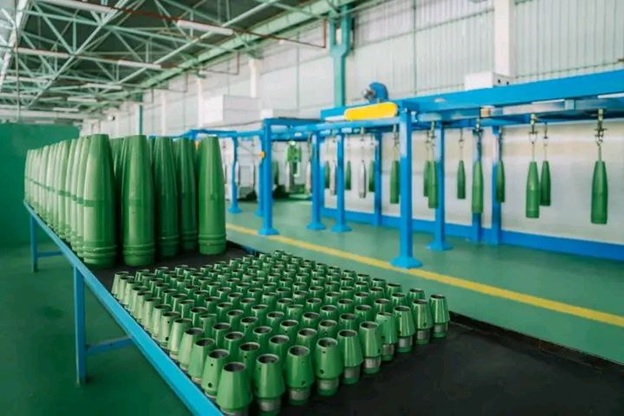
ADDIS ABABA – Modern warfare technologies are increasingly shaping global conflicts and national sovereignty. However, countries with limited military manufacturing capabilities often depend on foreign suppliers, creating vulnerabilities. Nowhere is this more evident than in Africa, where many nations rely heavily on imported weaponry.
Recognizing the need for self-sufficiency, Ethiopia has been reforming its defense sector to achieve domestic armament production. After years of preparation, the country has recently inaugurated the Sky Win Aeronautics drone manufacturing facility and expanded the Homicho Ammunition Engineering Complex, marking a significant shift towards domestic military production.
Until three to four years ago, Ethiopia relied on imports to meet its ammunition needs. However, recent developments have enabled the country not only to produce its own ammunition but also to export surplus production.
“Although there were previous attempts to manufacture bullets locally, Ethiopia depended on imports until three years ago.
Now, the country has developed the capability to produce ammunition domestically and even export it,” said Prime Minister Abiy Ahmed(PhD) during a visit to the Homicho Ammunition Engineering Complex.

These investments in ammunition production are yielding significant results. Ethiopia now produces small- and medium-caliber bullets using advanced military technology. This progress allows the country to meet its security demands while also positioning itself as a supplier to other African nations.
The decision to export ammunition is proving economically beneficial. Ethiopia has generated over 30 million USD from ammunition exports in just three months, demonstrating that its defense industry sector is regaining prominence. This industry has the potential to meet domestic demand while also serving the broader African market, which is currently dominated by European and Asian manufacturers.
“Ethiopia has signed contracts with several countries to supply ammunition, generating over 30 million USD in just three months,” Premier Abiy stated.
Beyond ammunition, Ethiopia previously depended on imported military equipment, including uniforms and boots, which created financial burdens. In response, the government launched an initiative to replace these imports with local production, achieving significant success. This shift serves as a model for other African nations, demonstrating that investment in self-reliance can reduce military expenditures, according to Field Marshal Birhanu Jula, Chief of General Staff of the Ethiopian National Defense Forces.
Apart from financial constraints, importing arms presents logistical challenges. Military procurement processes are often lengthy and complex, delaying access to essential supplies.
“We faced difficulties in obtaining the necessary ammunition when needed. Manufacturers require months, sometimes even a year, to deliver orders,” Field Marshal Birhanu Jula stated.
Recognizing these challenges, Ethiopia has initiated the domestic production of various firearms, including Kalashnikov rifles, Bren guns, sniper rifles, DShK heavy machine guns, and tank artillery.
Another milestone in the defense industry is the establishment of the Sky Win Aeronautics drone manufacturing facility. Ethiopia is now producing drones with diverse capabilities, designed and built by Ethiopian professionals.
“To sustain this progress, we must invest in continuous research, expand our market reach, and strengthen the local production of smart sensor technologies,” the Premier stated at the facility’s inauguration.
He also emphasized that Ethiopia’s growing defense capabilities are not intended to fuel conflict but to enhance national security and regional stability.
“Through deterrence, we seek to secure peace and stability in the face of belligerent actors,” he remarked.
Ethiopia’s transition from an arms importer to an emerging defense producer marks a significant step toward military and economic independence. By investing in domestic production, the country is reducing reliance on foreign suppliers, strengthening national security, and creating new economic opportunities, The Ethiopian Herald has learned.
BY YESUF ENDRIS
THE ETHIOPIAN HERALD TUESDAY 11 MARCH




